- Home
- D. K. Holmberg
The Darkest Revenge
The Darkest Revenge Read online
The Darkest Revenge
The Elder Stones Saga Book 1
D.K. Holmberg
Copyright © 2019 by D.K. Holmberg
Cover by Damonza.com
All rights reserved.
No part of this book may be reproduced in any form or by any electronic or mechanical means, including information storage and retrieval systems, without written permission from the author, except for the use of brief quotations in a book review.
If you want to be notified when D.K. Holmberg’s next novel is released and get a few free books and occasional other promotions, please sign up for his mailing list by going here. Your email address will never be shared and you can unsubscribe at any time.
www.dkholmberg.com
Contents
Prologue
1. Daniel
2. Haern
3. Haern
4. Haern
5. Haern
6. Daniel
7. Lucy
8. Haern
9. Haern
10. Haern
11. Haern
12. Daniel
13. Daniel
14. Daniel
15. Daniel
16. Lucy
17. Lucy
18. Lucy
19. Haern
20. Daniel
21. Daniel
22. Daniel
23. Haern
24. Haern
25. Daniel
26. Lucy
27. Daniel
28. Daniel
29. Daniel
30. Daniel
31. Haern
32. Haern
33. Haern
34. Lucy
35. Daniel
36. Daniel
37. Haern
38. Daniel
39. Haern
40. Daniel
41. Lucy
42. Haern
43. Daniel
44. Haern
45. Daniel
46. Haern
Epilogue
Author’s Note
Also by D.K. Holmberg
Prologue
Wind whistled all around, and Ryn stood with her eyes closed, feeling the way it caressed her cheeks, the way it swirled around her, power that flowed from all over. Wind carried with it possibilities. It carried the promise of rain or sunshine, but also the smells of other lands, places she longed to visit. Today it carried only the heat from the distant volcano.
Maunial was active today, far more active than she had been in ages, occasionally belching black smoke that drifted high into the sky, leaving darkness. Most days, she could be felt as a steady rumbling, the kind of stirring that rolled through Ryn’s body, leaving her with a sense of connection to this land. Other times she was quiet, though there was always the promise of more.
“She’s unhappy,” Tab said.
Ryn nodded, not looking over to her friend. Tab was about the same age as Ryn, but he had not yet taken his first trek up the side of Maunial. Eventually, he would have to. Then again, Ryn had only made her first journey a few months ago. She had spent a day, no more than that, before coming back down. Her mother had been so proud of her, but her village wise man had been disappointed, wanting her to push higher and higher. He had been her age when he had nearly crested the volcano.
“She’s been unhappy the last few days,” Ryn said. The last week, in fact. Every day the volcano had spewed the same soot, black and angry, filling the sky. It hung like a cloud high overhead in the distance, blocking the sun as it rose, leaving the village wise woman to claim that Maunial would erupt soon.
It had been a long time since she had erupted.
“What are you doing out here?” Tab asked.
“You don’t need to follow,” Ryn said, glancing over to Tab, crossing her arms over her simple cotton dress. Raven-colored hair hung in a braid down her back, similar in color to Tab’s but not nearly as dark. His was so black as to be formed from the volcanic rock itself.
“You don’t want me to?”
“I didn’t say that, did I?”
“You didn’t say that you did want me to, either.”
Ryn glanced up at the volcano. “If you have to know, I’m collecting conosh.” She looked up at the trees, where the enormous fruits grew. As Ryn was a strong climber and had no real fear of heights, she was a natural fit to climb up the slippery trunks to reach the conosh. They could be used in multiple ways throughout the city, making them incredibly valuable, and her family needed the money. The plantation highly paid those who were willing to collect the fruits.
“I’ve never thought that was safe.”
“I’ve been doing it for years,” she said.
“That doesn’t mean it’s—”
There came a steady rumble, and both of them looked over to the mountain. When the rumbling died down, another plume of black smoke belched into the sky before disappearing.
Without waiting on Tab, Ryn grabbed the long band of cloth she carried with her and slipped it around the trunk. She didn’t always need it, but there was a certain reassurance in having a way to prevent herself from sliding down the trunk when she climbed. She could use it to lock her arms in as well and hold herself in position as she collected the conosh.
As she climbed, she noticed that Tab stayed on the ground observing her. Ryn ignored his watchful gaze, continuing to make her way along the trunk of the tree.
“How do you do that?”
“Practice,” she hollered back.
It was a matter of locking her legs as she slipped her arms up, and with the steady rumbling of Maunial, she wanted the extra support. She could manage without it, but the idea that she could slip and fall always remained lodged in her head, a reminder of the dangers that were inherent in climbing these trees.
When she reached the lowest branch, she inched along it until she could reach the conosh. The fruit were nearly as large as her head, covered in a strange thick hair that they used to weave together for clothing, and hard-shelled. Reaching for her belt knife, she slashed at the nearest fruit, watching as it dropped.
“Hey!”
“Make yourself useful and collect those for me.”
“Only if you give me a share.”
“Why would I give you a share when I’m doing all the hard work?”
“Because you like me?”
Ryn shook her head, making her way further along the branch. She could reach three more fruits before it would hang down too low, almost dangerously low, and as she worked her way along the branch, she hacked at each of them. They dropped to the ground below with a loud thud.
Afterward, she maneuvered her way up to the next branch and positioned herself for a moment, preparing so that she could be ready for the next fruit, and the one after.
If she were afraid of heights, this would be a terrible job for her, but as she had never feared them, she managed to climb up the tree easily, making a point of not looking down.
It didn’t take her long to work her way through the fruits, cutting down all that she could, and when she was satisfied, she slipped along the trunk, reaching the ground.
“How many did I get?” she asked.
“Probably a dozen. Maybe more.”
Tab held one of the fruits up, running his fingers along the fibers. “My mother has been teaching my sister to weave this.”
“Your mother is one of the best weavers in the village.”
The cloth woven out of the conosh fruit was incredibly supple and surprisingly waterproof. Most of the sailors in their village wore conosh cloth when they went out to sea because the cloth would shed water rather than absorbing it.
Ryn unfolded the sheet she had brought for this purpose and grabbed the fruits off the ground, loa
ding them onto the sheet. As she did, the ground rumbled once again.
This time, it seemed to shake from all over.
“What was that?” Tab asked.
Ryn glanced over toward the mountain, but there was no smoke erupting.
That was unusual.
Ryn grabbed the corners of the sheet, bundling them together, and motioned for Tab to follow. They raced toward the village.
It didn’t take long for them to reach it. Vuahlu was a large seaside village, and Ryn had always thought it had a strange energy that didn’t come from the steady rumbling of the volcano in the distance or the storms that so often swept in from the sea. A haze hung around the city, often making it difficult to see. She had grown accustomed to it during the time she’d spent in the village, but that didn’t mean she liked it.
She waved to Tab, and her friend headed back toward his home while Ryn went to the one she shared with her mother—and would share until she was married, the only time she would be allowed out of her home. She found her working inside at the kitchen counter, steadily kneading dough. The smell of bread and yeast was a welcome aroma, and it set her stomach rumbling.
She glanced up as she entered, and her mother’s faint green eyes—eyes that were so much like her own—met hers. “Ryn. You’re back early. Have you—”
Ryn tossed one of the fruits toward her mother, who caught it easily. “I collected nearly a dozen today.”
Her mother held the fruit up. In the dim light of the kitchen, the fibers coating the fruit had a reddish quality to them. When woven, the colors would shift, slowly sliding from red to orange and sometimes to violet, almost as if the conosh wanted to reveal the rainbow to them.
“It’s a reasonable size.”
She snorted at her mother. “Reasonable? You try hanging from the canopy and collecting all those fruits.”
“I have no interest in hanging like a bird from the canopy. That’s why I have you.” She flashed a smile before turning back to her work.
Ryn took a seat at the table, leaning back and closing her eyes. “I am getting tired of the trees, Mother.”
“You have a job. That’s more than many can claim,” she chided. “Would you rather be a fisher and risk the storms? You know how few of those ever return.”
“I’d rather return north, to where the rest of our people—”
Her mother tapped her fist on the table. “Our people? These are our people, Ryn. They welcomed us to the village and have allowed us to remain. They’ve given you work. How could they be anything but our people?”
Ryn knew she needed to choose her words carefully. She didn’t want to offend her mother too much, not after what they had been through. “That’s not what I mean.”
“Then what? Do you want to return to where your father was hunted and killed?”
Ryn took a deep breath. “I… I just want to know what happened. If nothing else, I deserve that.”
A pained expression crossed her mother’s face. “I suppose you do. You’re old enough now that you should know the reason we came here, and the reason you should remain.”
She rolled the dough a moment more before setting it on the counter near the oven.
“It has to rise anyway,” she said, anticipating Ryn’s question. Her mother took a seat next to her, leaning toward her. “What color are my eyes?”
“Green. Like mine.”
“And what about your friend Tab? What color are his eyes?”
Ryn frowned. “Blue. His are deep blue, like the deep water of the sea.”
Her mother smiled at her. “Have you told him?”
“Told him what?”
Her mother leaned forward and patted her hand. “I know a part of you hopes that the village is temporary, but it’s safe here. Remaining here gives you—us—a chance to have a life. That’s all I’ve ever wanted. That’s all your father would have ever wanted.” She sighed. “You should tell him that you notice his eyes.”
“Mother. My eyes?”
Her mother smiled. “Fine. Take away a mother’s joy in teasing you, if only a little. Anyway. My eyes—your eyes—are a marker of where we come from. There’s a place far from here that is populated with people all with eyes the color of ours.” She frowned, almost to herself, and shook her head. “That’s not quite right. The people in that city have eyes of a deeper green than ours. We’ve been away too long. The power fades the longer we’re gone.”
It was Ryn’s turn to smile. “You want me to believe that our green eyes give us power? I’m in trouble, then. Mine are so pale as to be almost clear.” That was the difference between Ryn and her mother. Whereas her mother’s eyes were a deeper green, Ryn’s were more washed out, faded, almost as if they had been bleached by the bright sun of Vuahlu, though they had always been pale.
“More than you can ever know.”
“What kind of power?” Ryn sat forward, smiling at her mother. “Will it let me reach the conosh without trying to climb the stupid trees? Will it keep me from falling once I get there?”
It amused her that she was talking about magic with her mother like this. Ryn knew there was magic in the world—even the isolated people of Vuahlu knew that—but it wasn’t something Ryn would ever have imagined herself capable of performing. There were different kinds of power, but most were so mysterious as to be impossible to believe.
“I don’t know what kind of power you would have had were we to have remained. With each generation, the ability fades. Mine is weaker than my mother’s, and hers… well, she was born in the city, so she had power.”
“If she was born in the city, and if leaving takes away powers, why would she have left?” Ryn had other questions—such as what power her mother might possess—but that was the first to come out of her mouth.
“She had no choice. She was exiled from the city for reasons I never learned. All that matters is that she lived. She had me, and I had you.”
“What ability do you have?”
Her mother got up from the chair and returned to the dough, rolling it slowly. Every so often, she glanced up, though she didn’t seem willing to meet Ryn’s gaze. “I have the gift of Sight. From what I understand, it’s an ability that’s so common as to be practically useless.”
“What does it do?”
She dusted her hands on her apron and disappeared into the next room. When she returned, she handed Ryn the spyglass that had once been her father’s. “Look through there.”
“I’ve used Father’s glass before.”
“Just humor me, Ryn.”
Ryn brought the spyglass to her eye and peered through it. Everything was magnified, though it had a slight blur around the edges. From what she’d learned, it was a quality piece, and Ryn was happy her mother had never attempted to sell it. It would likely fetch quite the price.
“What now?”
“What do you see?”
“Everything is bigger.”
Her mother sighed. “Bigger. Crisper. Clearer. That is what my Sight is like.”
“You don’t need the spyglass? But I’ve seen you using it.”
“Imagine you looked through this and then through another. How much more do you think you could see?”
Ryn couldn’t imagine. It was almost too much to take in. “This Sight. It’s common?”
“Common enough for our kind, but it’s less common outside of our homeland.”
“Why haven’t you shared this with me before?”
“Because it doesn’t matter. Your father and I knew from the moment you were born that with eyes as pale as yours, there wouldn’t be any real ability for you. I thought it better not to tell you what could have been and is not.”
Ryn stared at the spyglass for a moment. “What could have been?”
“I don’t know. Perhaps if you had been born… it doesn’t matter.”
“Where?”
“Like I said, it doesn’t matter. I wasn’t born there either.”
“But you have this ability.�
��
“I do, but it’s weaker than it would’ve been had I been born in the city.”
Her mother returned to the counter and continued to roll out the dough. It had begun rising, and she flattened it, likely destroying all the effort she’d put into it. It was a measure of how hard it was for her to discuss this with Ryn.
“What of Father?” When she didn’t answer, Ryn stepped around the counter and rested her hands on her mother’s, stopping her from rolling out the dough. “What ability did he possess?”
“Ryn—”
“Is that why he was killed? It had something to do with his ability? Is that why you haven’t told me anything about his death?”
Her mother breathed out a heavy sigh. “A man named Lareth killed your father.”
“Why?”
“Because your father was a Reader.”
“What is that?”
“He could reach into someone’s mind and know what they were thinking.”
Ryn blinked. “He could what?”
“It’s not as rare as you might think. In the land we came from—”
Ryn slapped the table. “I don’t care about them. I care about what happened to Father. Was this ability the reason he died?”
Her mother shook her head. “No. Your father was a good man. He died because a bad man hurt him.”
“Lareth.”
“We shouldn’t say that name.”
“Why? Do you fear him?”
Her mother stared down at the dough as she continued to roll it. “Lareth can travel anywhere. That’s his ability. And he continues to hunt for those like us. He blames us for something.”

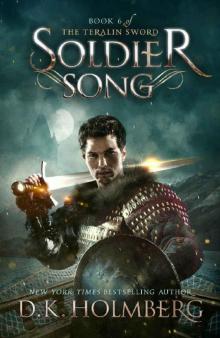 Soldier Song (The Teralin Sword Book 6)
Soldier Song (The Teralin Sword Book 6)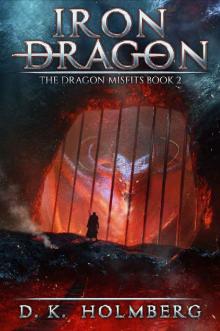 Iron Dragon: An Epic Fantasy Adventure (The Dragon Misfits Book 2)
Iron Dragon: An Epic Fantasy Adventure (The Dragon Misfits Book 2)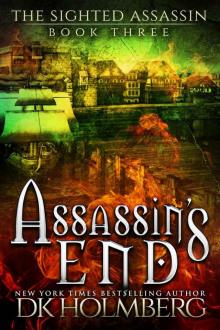 Assassin's End
Assassin's End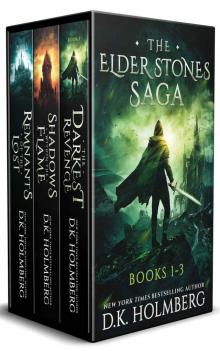 The Elder Stones Saga Boxset: Books 1-3
The Elder Stones Saga Boxset: Books 1-3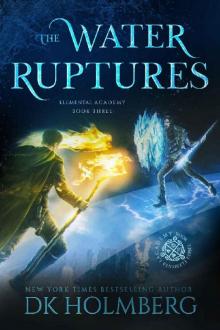 The Water Ruptures
The Water Ruptures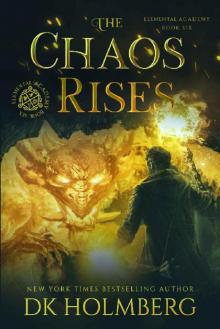 The Chaos Rises (Elemental Academy Book 6)
The Chaos Rises (Elemental Academy Book 6)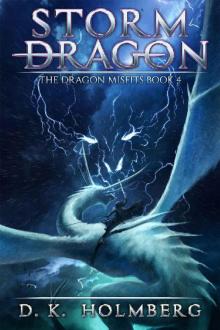 Storm Dragon: An Epic Fantasy Adventure (The Dragon Misfits Book 4)
Storm Dragon: An Epic Fantasy Adventure (The Dragon Misfits Book 4)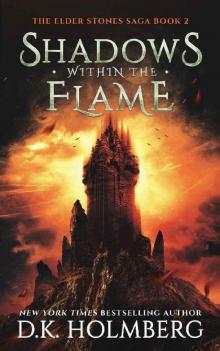 Shadows Within the Flame (The Elder Stones Saga Book 2)
Shadows Within the Flame (The Elder Stones Saga Book 2)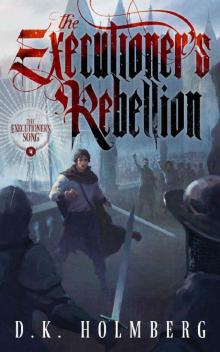 The Executioner's Rebellion (The Executioner's Song Book 4)
The Executioner's Rebellion (The Executioner's Song Book 4)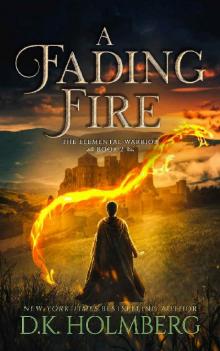 A Fading Fire
A Fading Fire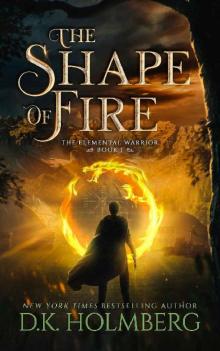 The Shape of Fire
The Shape of Fire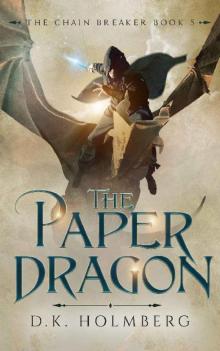 The Paper Dragon (The Chain Breaker Book 5)
The Paper Dragon (The Chain Breaker Book 5)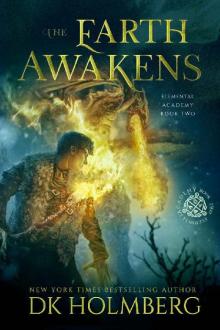 The Earth Awakens (Elemental Academy Book 2)
The Earth Awakens (Elemental Academy Book 2)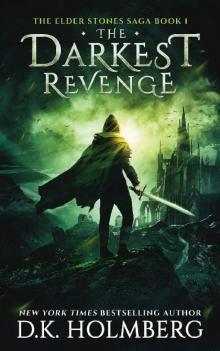 The Darkest Revenge
The Darkest Revenge The Lost Prophecy Boxset
The Lost Prophecy Boxset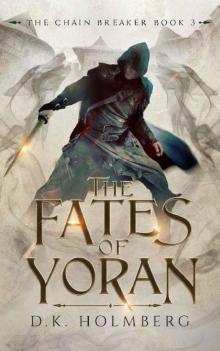 The Fates of Yoran (The Chain Breaker Book 3)
The Fates of Yoran (The Chain Breaker Book 3)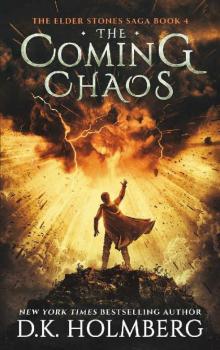 The Coming Chaos
The Coming Chaos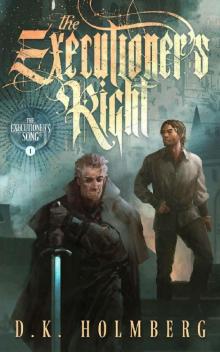 The Executioner's Right (The Executioner's Song Book 1)
The Executioner's Right (The Executioner's Song Book 1)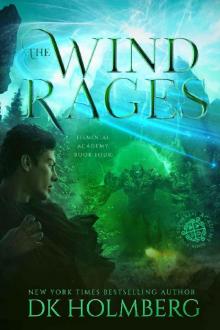 The Wind Rages (Elemental Academy Book 4)
The Wind Rages (Elemental Academy Book 4)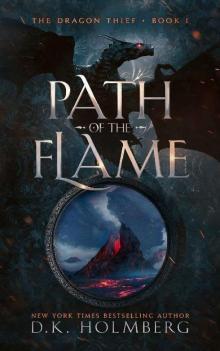 Path of the Flame (The Dragon Thief Book 1)
Path of the Flame (The Dragon Thief Book 1)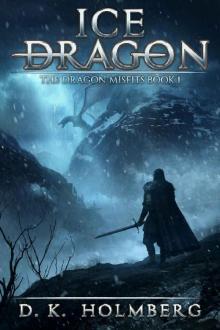 Ice Dragon: An Epic Fantasy Adventure (The Dragon Misfits Book 1)
Ice Dragon: An Epic Fantasy Adventure (The Dragon Misfits Book 1)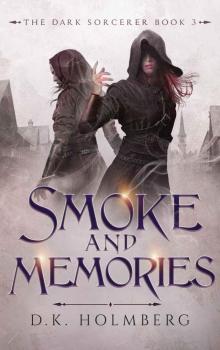 Smoke and Memories (The Dark Sorcerer Book 3)
Smoke and Memories (The Dark Sorcerer Book 3)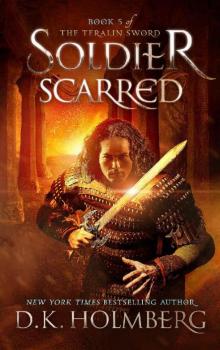 Soldier Scarred
Soldier Scarred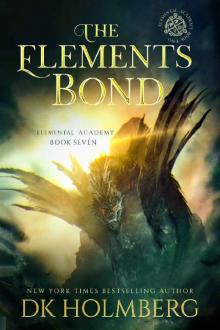 The Elements Bond (Elemental Academy Book 7)
The Elements Bond (Elemental Academy Book 7)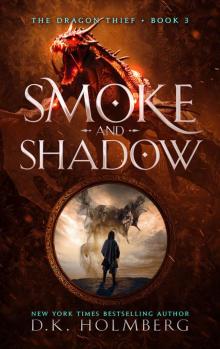 Smoke and Shadow: An Epic Fantasy Progression Series (The Dragon Thief Book 3)
Smoke and Shadow: An Epic Fantasy Progression Series (The Dragon Thief Book 3)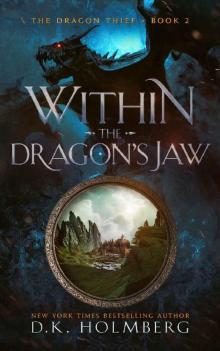 Within the Dragon's Jaw (The Dragon Thief Book 2)
Within the Dragon's Jaw (The Dragon Thief Book 2)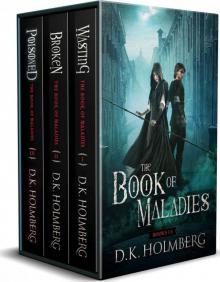 The Book of Maladies Boxset
The Book of Maladies Boxset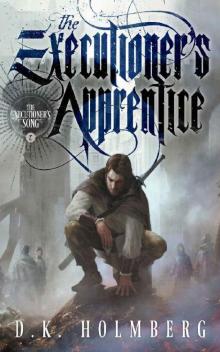 The Executioner's Apprentice (The Executioner's Song Book 2)
The Executioner's Apprentice (The Executioner's Song Book 2)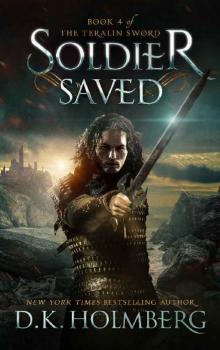 Soldier Saved
Soldier Saved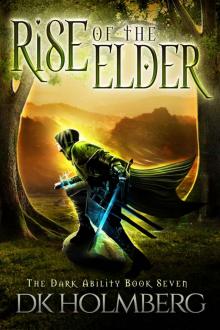 Rise of the Elder (The Dark Ability Book 7)
Rise of the Elder (The Dark Ability Book 7)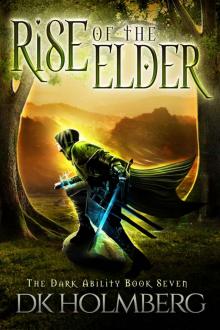 Rise of the Elder
Rise of the Elder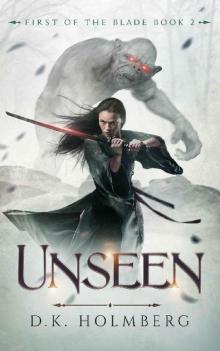 Unseen (First of the Blade Book 2)
Unseen (First of the Blade Book 2)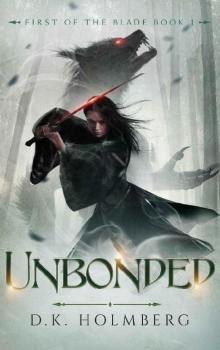 Unbonded (First of the Blade Book 1)
Unbonded (First of the Blade Book 1)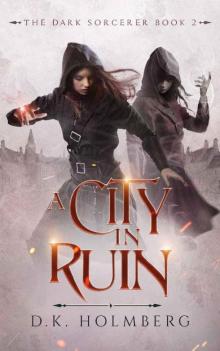 A City in Ruin (The Dark Sorcerer Book 2)
A City in Ruin (The Dark Sorcerer Book 2)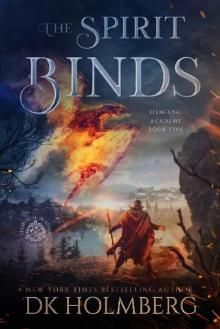 The Spirit Binds
The Spirit Binds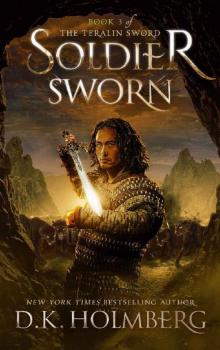 Soldier Sworn (The Teralin Sword Book 3)
Soldier Sworn (The Teralin Sword Book 3)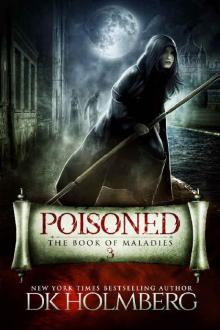 Poisoned: The Book of Maladies
Poisoned: The Book of Maladies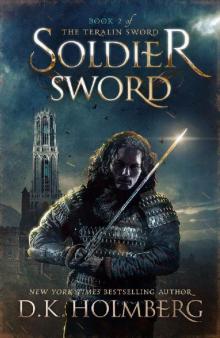 Soldier Sword (The Teralin Sword Book 2)
Soldier Sword (The Teralin Sword Book 2)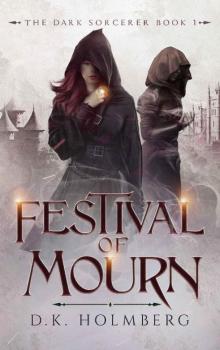 Festival of Mourn (The Dark Sorcerer Book 1)
Festival of Mourn (The Dark Sorcerer Book 1)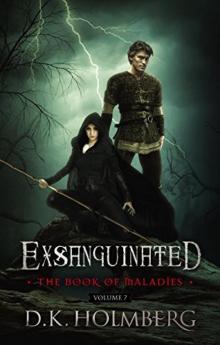 Exsanguinated
Exsanguinated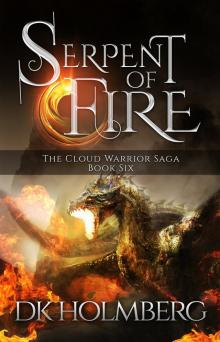 Serpent of Fire
Serpent of Fire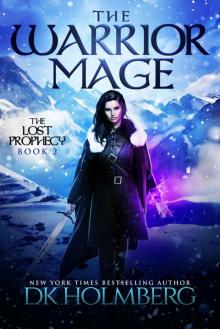 The Warrior Mage (The Lost Prophecy Book 2)
The Warrior Mage (The Lost Prophecy Book 2)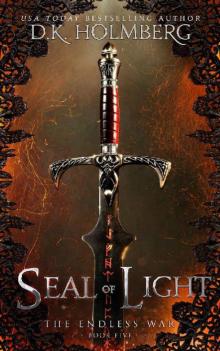 Seal of Light (The Endless War Book 5)
Seal of Light (The Endless War Book 5)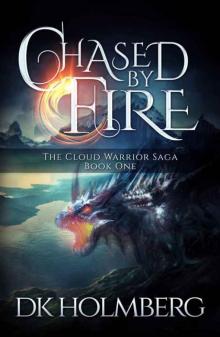 Chased By Fire (Book 1)
Chased By Fire (Book 1)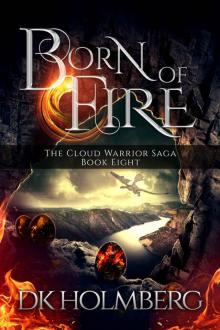 Born of Fire (The Cloud Warrior Saga Book 8)
Born of Fire (The Cloud Warrior Saga Book 8)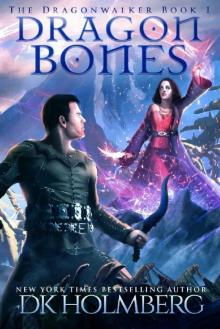 Dragon Bones (The Dragonwalker Book 1)
Dragon Bones (The Dragonwalker Book 1)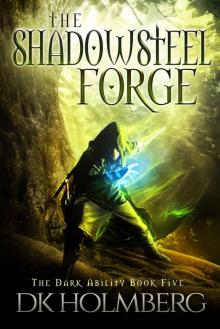 The Shadowsteel Forge (The Dark Ability Book 5)
The Shadowsteel Forge (The Dark Ability Book 5)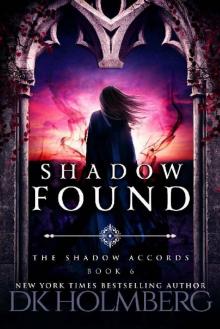 Shadow Found (The Shadow Accords Book 6)
Shadow Found (The Shadow Accords Book 6)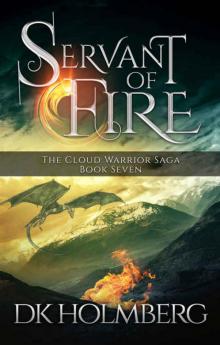 Servant of Fire (The Cloud Warrior Saga Book 7)
Servant of Fire (The Cloud Warrior Saga Book 7)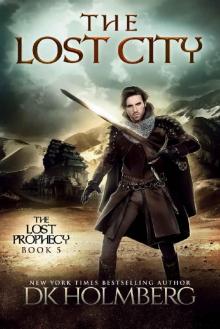 The Lost City (The Lost Prophecy Book 5)
The Lost City (The Lost Prophecy Book 5)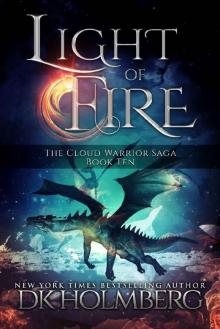 Light of Fire (The Cloud Warrior Saga Book 10)
Light of Fire (The Cloud Warrior Saga Book 10)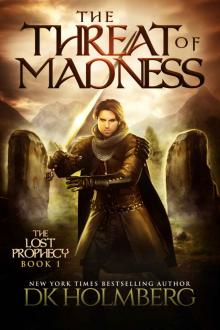 The Threat of Madness (The Lost Prophecy Book 1)
The Threat of Madness (The Lost Prophecy Book 1)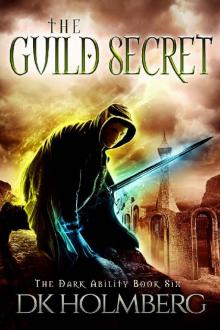 The Guild Secret (The Dark Ability Book 6)
The Guild Secret (The Dark Ability Book 6)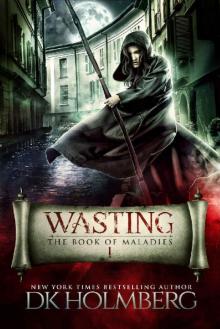 Wasting: The Book of Maladies
Wasting: The Book of Maladies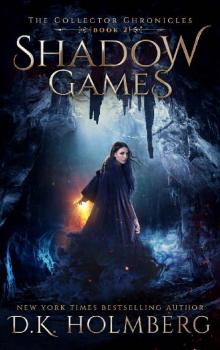 Shadow Games (The Collector Chronicles Book 2)
Shadow Games (The Collector Chronicles Book 2)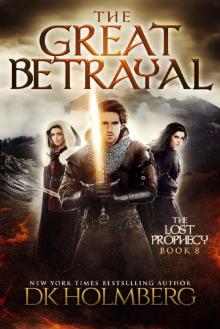 The Great Betrayal (The Lost Prophecy Book 8)
The Great Betrayal (The Lost Prophecy Book 8)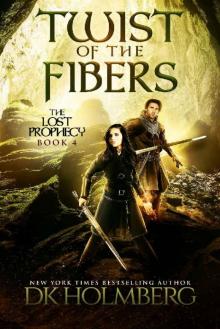 Twist of the Fibers (The Lost Prophecy Book 4)
Twist of the Fibers (The Lost Prophecy Book 4)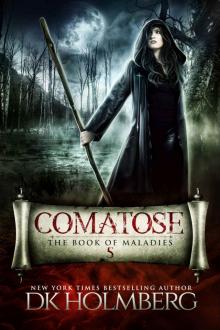 Comatose: The Book of Maladies
Comatose: The Book of Maladies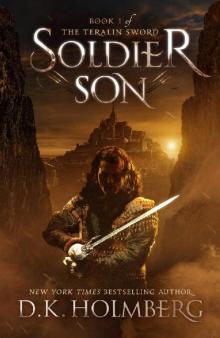 Soldier Son (The Teralin Sword Book 1)
Soldier Son (The Teralin Sword Book 1)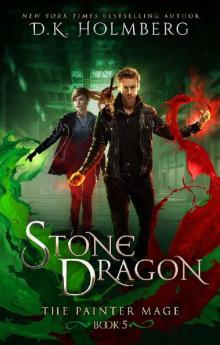 Stone Dragon (The Painter Mage Book 5)
Stone Dragon (The Painter Mage Book 5)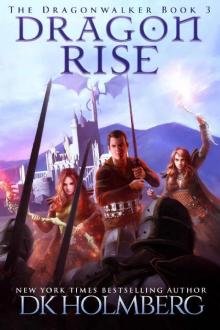 Dragon Rise
Dragon Rise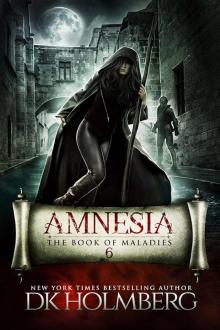 Amnesia_The Book of Maladies
Amnesia_The Book of Maladies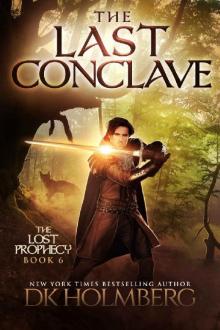 The Last Conclave (The Lost Prophecy Book 6)
The Last Conclave (The Lost Prophecy Book 6)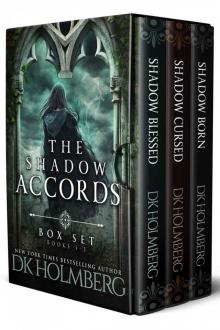 The Shadow Accords Box Set: Books 1-3
The Shadow Accords Box Set: Books 1-3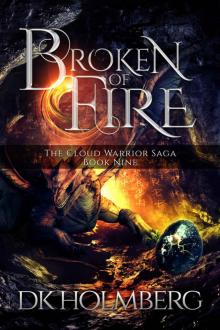 Broken of Fire (The Cloud Warrior Saga Book 9)
Broken of Fire (The Cloud Warrior Saga Book 9)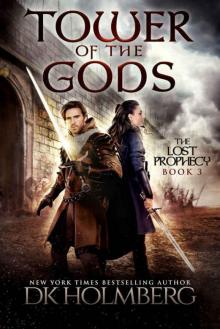 Tower of the Gods (The Lost Prophecy Book 3)
Tower of the Gods (The Lost Prophecy Book 3)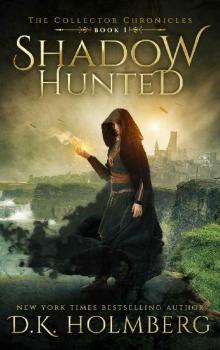 Shadow Hunted (The Collector Chronicles Book 1)
Shadow Hunted (The Collector Chronicles Book 1)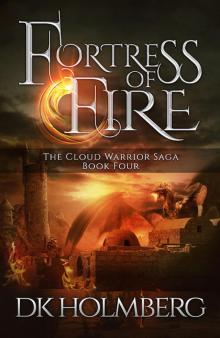 Fortress Of Fire (Book 4)
Fortress Of Fire (Book 4)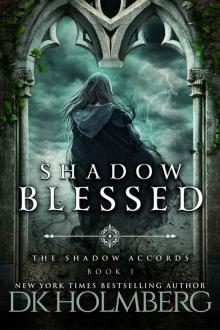 Shadow Blessed (The Shadow Accords Book 1)
Shadow Blessed (The Shadow Accords Book 1)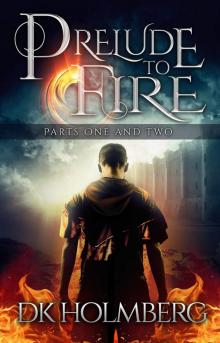 Prelude to Fire: Parts 1 and 2
Prelude to Fire: Parts 1 and 2 Amnesia: The Book of Maladies
Amnesia: The Book of Maladies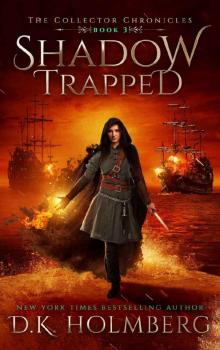 Shadow Trapped (The Collector Chronicles Book 3)
Shadow Trapped (The Collector Chronicles Book 3)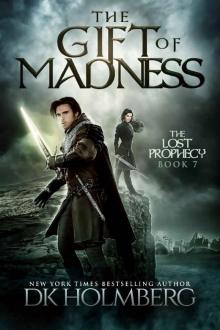 The Gift of Madness (The Lost Prophecy Book 7)
The Gift of Madness (The Lost Prophecy Book 7)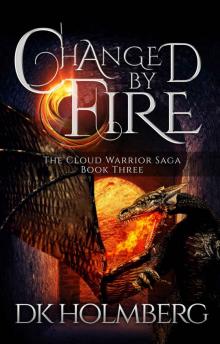 Changed by Fire (The Cloud Warrior Saga Book 3)
Changed by Fire (The Cloud Warrior Saga Book 3)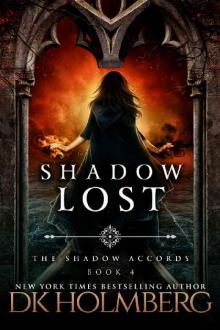 Shadow Lost (The Shadow Accords Book 4)
Shadow Lost (The Shadow Accords Book 4)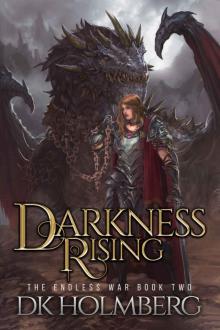 Darkness Rising (The Endless War Book 2)
Darkness Rising (The Endless War Book 2)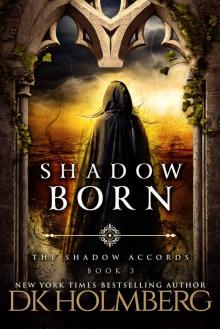 Shadow Born (The Shadow Accords Book 3)
Shadow Born (The Shadow Accords Book 3)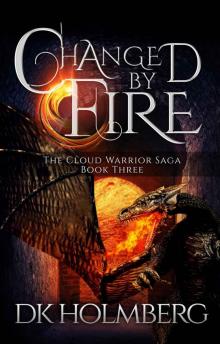 Changed By Fire (Book 3)
Changed By Fire (Book 3)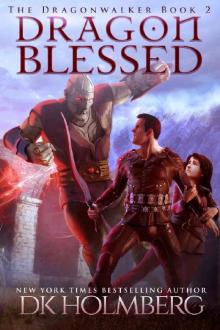 Dragon Blessed (The Dragonwalker Book 2)
Dragon Blessed (The Dragonwalker Book 2)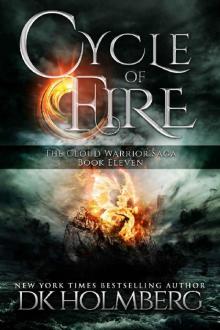 Cycle of Fire (The Cloud Warrior Saga Book 11)
Cycle of Fire (The Cloud Warrior Saga Book 11)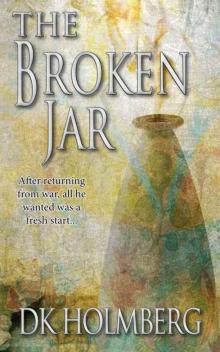 The Broken Jar
The Broken Jar Bound by Fire (The Cloud Warrior Saga Book 2)
Bound by Fire (The Cloud Warrior Saga Book 2)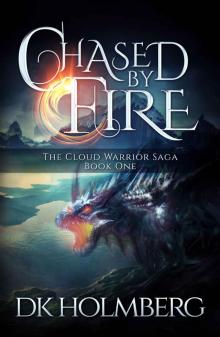 Chased by Fire (The Cloud Warrior Saga Book 1)
Chased by Fire (The Cloud Warrior Saga Book 1)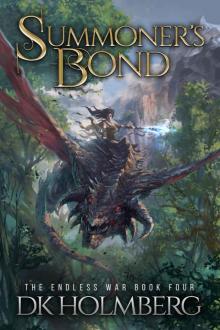 Summoner's Bond (The Endless War Book 4)
Summoner's Bond (The Endless War Book 4)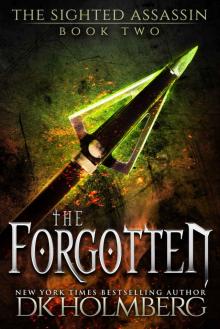 The Forgotten (The Sighted Assassin Book 2)
The Forgotten (The Sighted Assassin Book 2)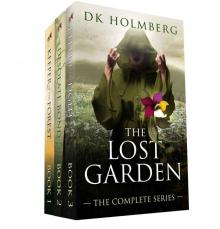 The Lost Garden: The Complete Series
The Lost Garden: The Complete Series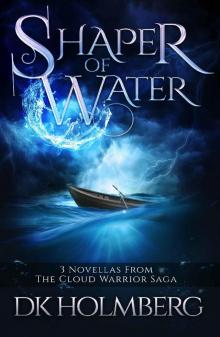 Shaper of Water: The Cloud Warrior Saga
Shaper of Water: The Cloud Warrior Saga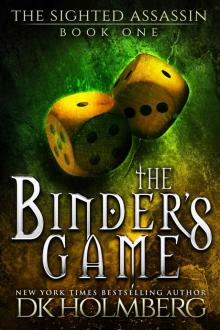 The Binder's Game (The Sighted Assassin Book 1)
The Binder's Game (The Sighted Assassin Book 1)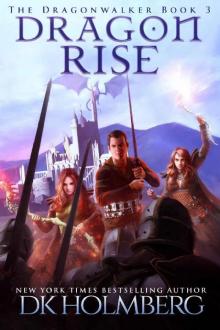 Dragon Rise (The Dragonwalker Book 3)
Dragon Rise (The Dragonwalker Book 3)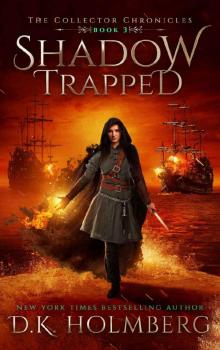 Shadow Trapped
Shadow Trapped Dragon Blessed
Dragon Blessed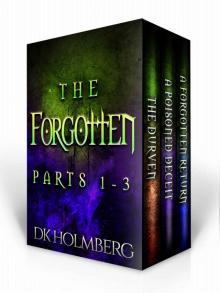 The Forgotten: A story in the world of The Dark Ability
The Forgotten: A story in the world of The Dark Ability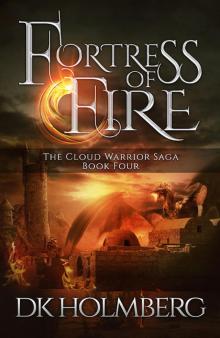 Fortress of Fire (The Cloud Warrior Saga Book 4)
Fortress of Fire (The Cloud Warrior Saga Book 4)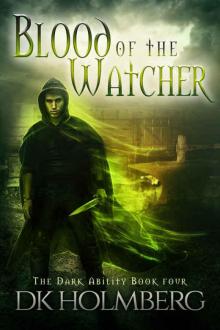 Blood of the Watcher (The Dark Ability Book 4)
Blood of the Watcher (The Dark Ability Book 4) Endless Night
Endless Night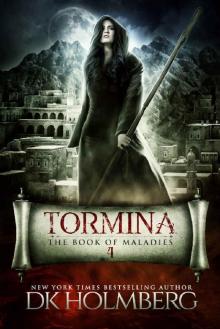 Tormina: The Book of Maladies
Tormina: The Book of Maladies The Painter Mage: Books 1-3
The Painter Mage: Books 1-3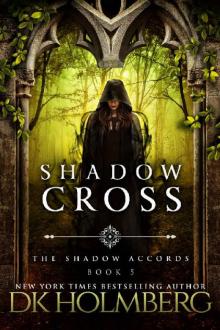 Shadow Cross (The Shadow Accords Book 5)
Shadow Cross (The Shadow Accords Book 5)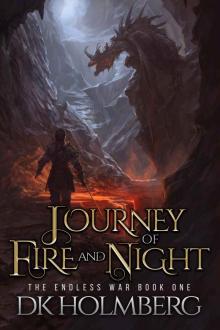 Journey of Fire and Night (The Endless War Book 1)
Journey of Fire and Night (The Endless War Book 1)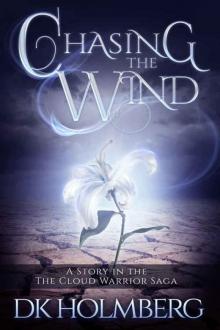 Chasing The Wind (Novella)
Chasing The Wind (Novella)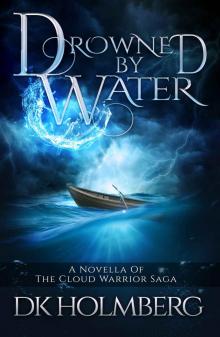 Drowned by Water (The Cloud Warrior Saga)
Drowned by Water (The Cloud Warrior Saga)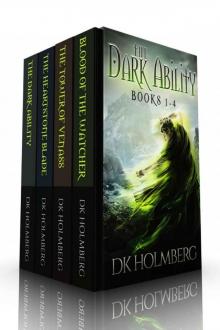 The Dark Ability: Books 1-4
The Dark Ability: Books 1-4